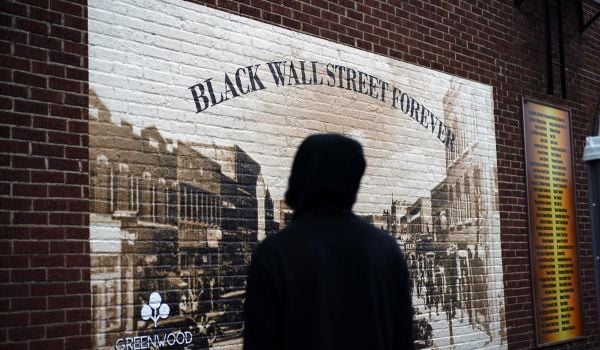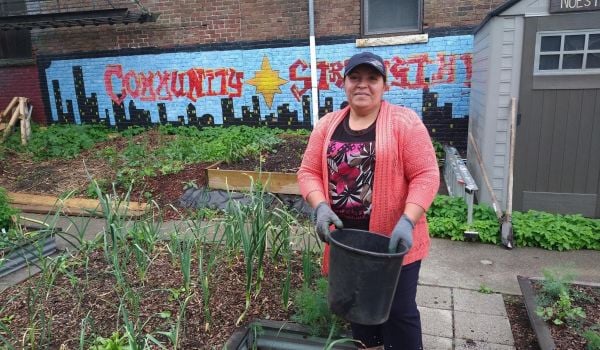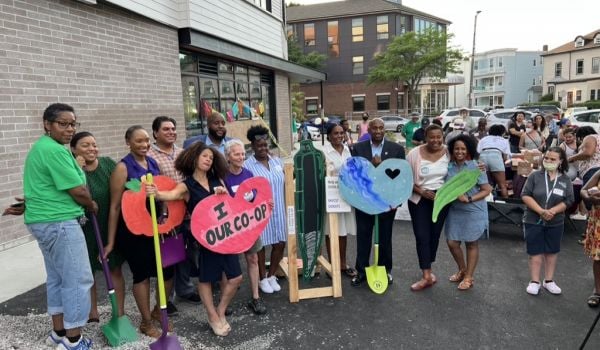Electricity? Check. Gas? Check. Water? Check. How about broadband internet?
The city of Boston is adding a new questionnaire to its development review process that will gather information on internet connectivity plans for new buildings. Created in partnership with WiredScore, a company that analyzes commercial buildings for their tech capacity (and certifies those that meet high standards), the questionnaire has no regulatory power. Rather, it makes planning for connectivity an integral and early part of the building review process, and encourages developers to think about internet provider competition and infrastructure resiliency before designs have even been approved.
This could impact both the scale of the building, and the scale of the city, says Anne Schweiger, Boston’s broadband and digital equity advocate. Reliable internet connectivity is a boon to companies looking to launch or relocate in the city, particularly the tech startups that have been drawn there in recent years. And nudging developers to take a more proactive role in reaching out to multiple internet service providers about serving their buildings could increase competition citywide and benefit residents too. Until recently, says Schweiger, a majority of Boston households had only one option for internet provider, which can mean high prices and poor service.
“If from the very beginning of designing a building and reaching out to providers you can have a pro-competition perspective on the role that your building can play in Boston’s broadband and digital equity goals, that’s a real win for everyone,” she says.
The questionnaire will now be a part of the city’s Article 80 process, which provides guidelines for the review of certain large new building projects or major renovations. Currently, it involves studying a building’s impact on transportation, the environment, historic sites and other factors. Now it will also ask about a building’s telecom room, broadband cabling, cellular reception and more. To prioritize competition, developers are asked to report which internet service providers they’ve contacted about serving the building, and their response.
“Having more of them in the building is advantageous from a competitive perspective, and from a primary and backup connectivity perspective,” says Aaron Meyerson of WiredScore. Schweiger reached out to the company, which got its start thanks to a public-private partnership with New York Mayor Bill de Blasio’s administration, to advise on the components of a broadband-ready building.
Resiliency is next.
“They need to make sure that internet will never go down. It needs to be resilient and redundant,” says Meyerson. Competition helps here, and so does the actual infrastructure: Where the telecom room is located, whether there’s a secondary set of cabling in case the first goes down.
Lastly is capacity for growth. Technologies are sure to change. Is the building equipped to run more cable, to provide faster service to more tenants if internet-hungry businesses move in?
“These kinds of criteria related to connectivity are very rarely part of the official process of reviewing buildings or even the official process of most developers,” says Meyerson. “It’s not highly regulated. It’s not like electricity or gas or water, yet it’s just as important.”
With Boston growing rapidly, and in need of 53,000 new housing units by 2030 to meet demand, “we see this as an incredible opportunity,” says Schweiger. “This is 53,000 opportunities to get broadband right.”
One component will be folding internet connectivity into the building process, and not as an afterthought. Currently, developers will sometimes finish a project, then call a service provider to hook up internet, and the provider will need to dig up newly finished sidewalks to lay cable. Schweiger hopes that bringing broadband into the review process early will cut down on these post-construction disruptions.
“It’s getting that conversation started. It’s telling them, ‘think about capacity and resiliency and redundancy at a point when it’s quite affordable to do so.’ They’re designing a building from scratch, it would be great if they were building these things in from the very beginning,” says Meyerson.
Schweiger also expects the city to learn a lot from the questionnaire responses — about why an internet service provider wouldn’t work with a certain building, or why a developer wouldn’t reach out to multiple. Based on what they learn, the broadband-ready guidelines could become more codified in the future. Boston is the first city to work with WiredScore on this type of questionnaire, but other cities, like Loma Linda, California, have incorporated fiber-optic readiness into their municipal code. In Loma Linda, the city runs a high-speed, fiber-optic network, and requires that new residences and commercial buildings connect to it.
Jen Kinney is a freelance writer and documentary photographer. Her work has also appeared in Philadelphia Magazine, High Country News online, and the Anchorage Press. She is currently a student of radio production at the Salt Institute of Documentary Studies. See her work at jakinney.com.
Follow Jen .(JavaScript must be enabled to view this email address)
















